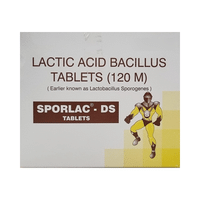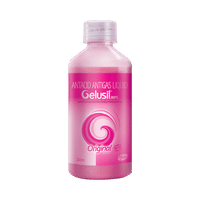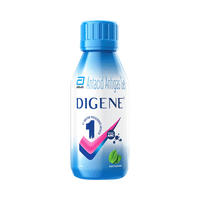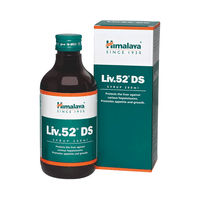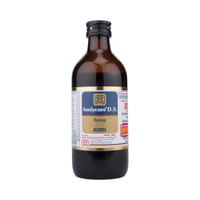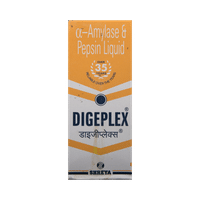Rs.105for 1 strip(s) (10 capsule sr each)
food interaction for Acerab
alcohol interaction for Acerab
pregnancy interaction for Acerab
lactation interaction for Acerab
food
alcohol
pregnancy
lactation
Acerab OD 200mg/20mg Capsule SR may be taken with or without food, but it is better to take it at a fixed time.
None
None
CAUTION
It is unsafe to consume alcohol with Acerab OD 200mg/20mg Capsule SR.
UNSAFE
Acerab OD 200mg/20mg Capsule SR may be unsafe to use during pregnancy. Although there are limited studies in humans, animal studies have shown harmful effects on the developing baby. Your doctor will weigh the benefits and any potential risks before prescribing it to you. Please consult your doctor.
CONSULT YOUR DOCTOR
Information regarding the use of Acerab OD 200mg/20mg Capsule SR during breastfeeding is not available. Please consult your doctor.
CONSULT YOUR DOCTOR
SALT INFORMATION FOR Acerab
Aceclofenac(200mg)
Uses
Aceclofenac is used for pain relief. It relieves pain and inflammation in conditions like rheumatoid arthritis, ankylosing spondylitis, and osteoarthritis.
How it works
Aceclofenac is a non-steroidal anti-inflammatory drugs (NSAID). It works by blocking the release of certain chemical messengers that cause pain and inflammation (redness and swelling).
Common side effects
Nausea, Diarrhea, Abdominal pain, Constipation, Dyspepsia, Increased liver enzymes, Gastritis, Mouth ulcer, Increased blood urea, Increased creatinine level in blood, Rash, Anaphylactic reaction, Anemia (low number of red blood cells), Cardiac failure, Gastrointestinal ulcer, Breathlessness
Rabeprazole(20mg)
Uses
Rabeprazole is used in the treatment of acidity, gastroesophageal reflux disease (acid reflux) and peptic ulcer disease.
How it works
Rabeprazole is a proton pump inhibitor (PPI). It works by reducing the amount of acid in the stomach which helps in relief of acid related indigestion and heartburn.
Common side effects
Diarrhea, Dizziness, Flatulence, Headache, Nausea, Vomiting, Abdominal pain, Weakness, Nervousness, Bronchitis (inflammation of the airways), Sinus inflammation, Sleepiness, Vertigo, Rash, Dryness, Increased liver enzymes, Dermatitis, Itching, General discomfort, Decreased white blood cell count (neutrophils), Decreased white blood cell count, Low blood platelets, Increased white blood cell count, Decreased appetite, Depression, Visual disturbance, Stomach inflammation, Stomatitis (Inflammation of the mouth), Taste change, Sweating, Weight gain
SUBSTITUTES FOR Acerab
226 Substitutes
226 Substitutes
Sorted By
 Rs. 140pay 29% more per Capsule SR
Rs. 140pay 29% more per Capsule SR Rs. 98save 10% more per Capsule SR
Rs. 98save 10% more per Capsule SR Rs. 140pay 23% more per Capsule SR
Rs. 140pay 23% more per Capsule SR Rs. 167.75pay 60% more per Capsule SR
Rs. 167.75pay 60% more per Capsule SR Rs. 100save 8% more per Capsule SR
Rs. 100save 8% more per Capsule SR
Expert advice FOR Acerab
- You have been prescribed Aceclofenac to relieve pain and inflammation.
- Take it with food or milk to prevent upset stomach.
- Take it as per the dose and duration prescribed by your doctor. Long term use may lead to serious complications such as stomach bleeding and kidney problems.
- It may cause dizziness, drowsiness or visual disturbances. Use caution while driving or doing anything that requires concentration.
- Avoid consuming alcohol while taking Aceclofenac as it can cause excessive drowsiness and increase your risk of stomach problems.
- Inform your doctor if you have a history of heart disease or stroke.
- Your doctor may regularly monitor your kidney function, liver function and levels of blood components, if you are taking this medicine for long-term treatment.
Frequently asked questions FOR Acerab
Aceclofenac
Q. Is Aceclofenac a good painkiller?
Aceclofenac is effective in relieving pain and inflammation. It is used to provide relief from various sorts of pain such as sprains, strains and other injuries. It is also helpful in various types of arthritis, gout, pain and inflammation following surgery.
Q. Is Aceclofenac safe?
Aceclofenac is safe if used in the dose and duration advised by your doctor. Take it exactly as directed and do not skip any dose. Follow your doctor's instructions carefully and let your doctor know if any of the side effects bother you.
Q. Does Aceclofenac get you high?
No, Aceclofenac does not get you high. It does not have an abuse potential (drug-seeking behavior) and does not cause physical or psychological dependence. However, if you do not feel well, consult your doctor.
Rabeprazole
Q. What is Rabeprazole used for?
Rabeprazole is used for the treatment of stomach and intestinal ulcers (gastric and duodenal ulcers), reflux esophagitis, or gastroesophageal reflux disease (GERD). It works by reducing the amount of acid made by your stomach and thus relieves your symptoms. Rabeprazole also prevents acidity associated with the use of painkillers and stress ulcers in critically ill people. It is also used to treat a disease associated with excessive acid production in the stomach known as Zollinger Ellison syndrome (ZES).
Q. How long does it take for Rabeprazole to work?
Rabeprazole starts working within an hour of taking it and shows maximum benefit within two to four hours. You should start feeling better within 2 to 3 days but it may take up to 4 weeks to relieve your symptoms significantly.
Q. What is the best time to take Rabeprazole?
It is best to take Rabeprazole before your breakfast. If you are taking two doses, take it in the morning and evening. Rabeprazole is more effective when it is taken an hour before your food.














